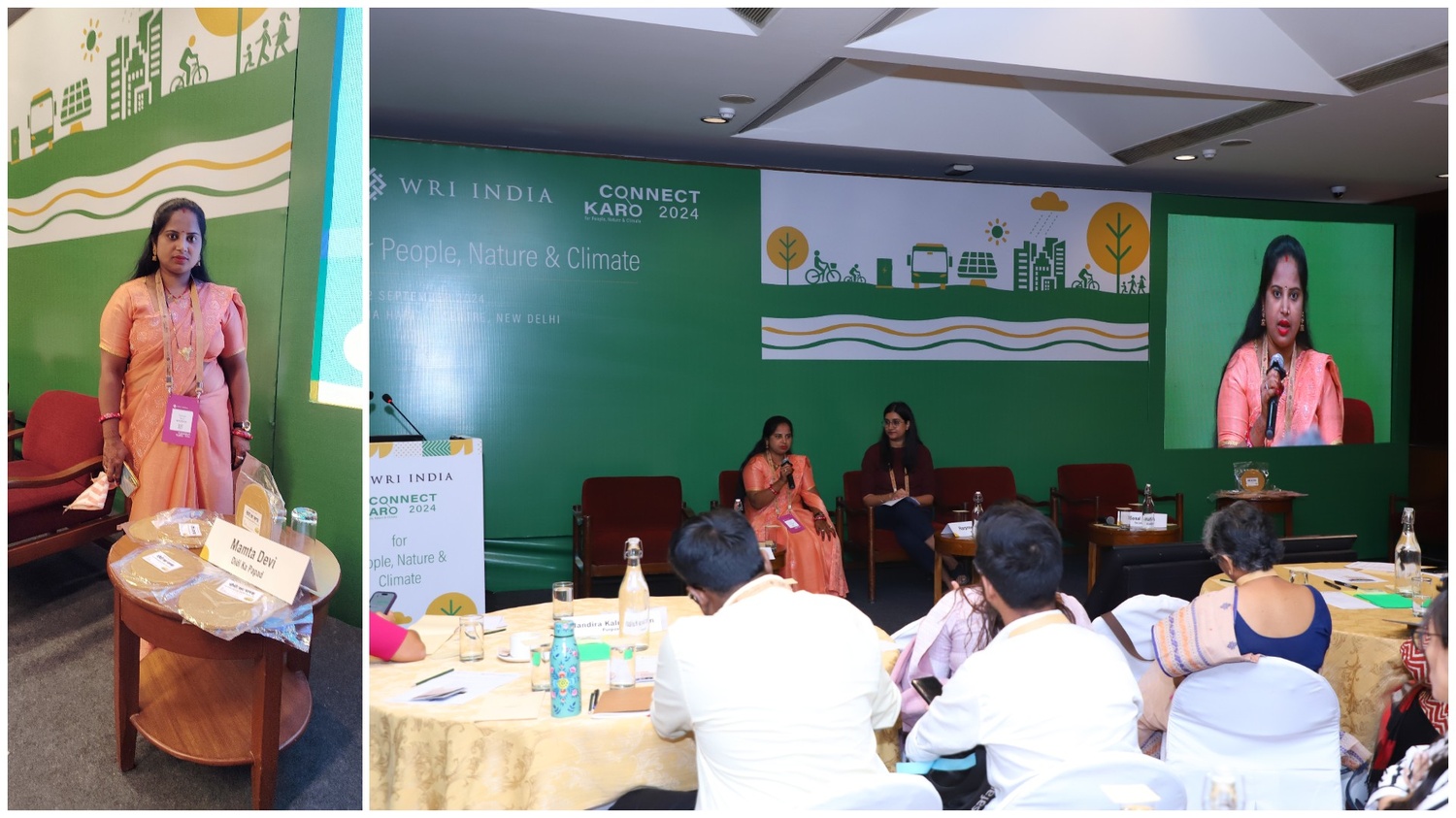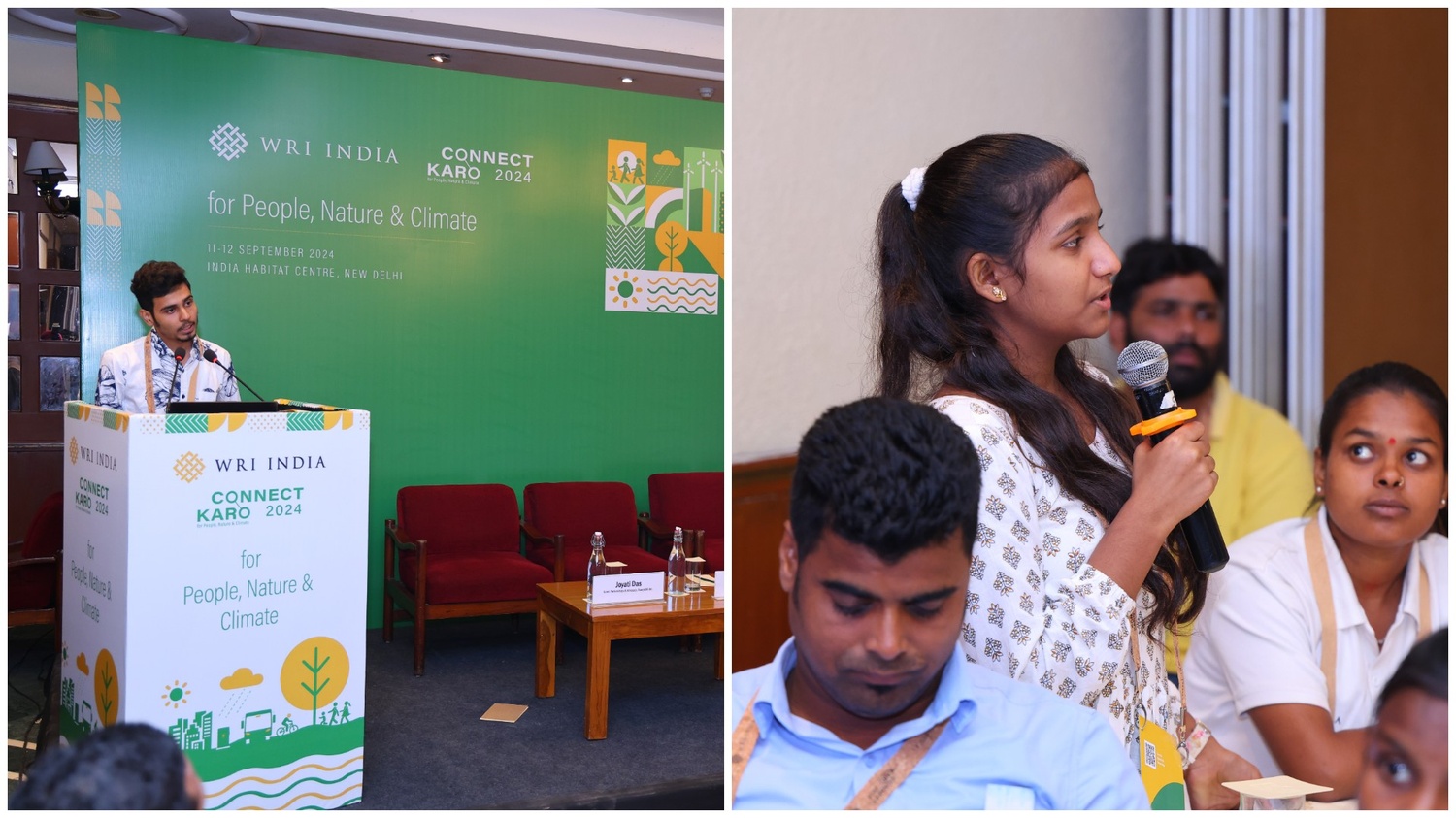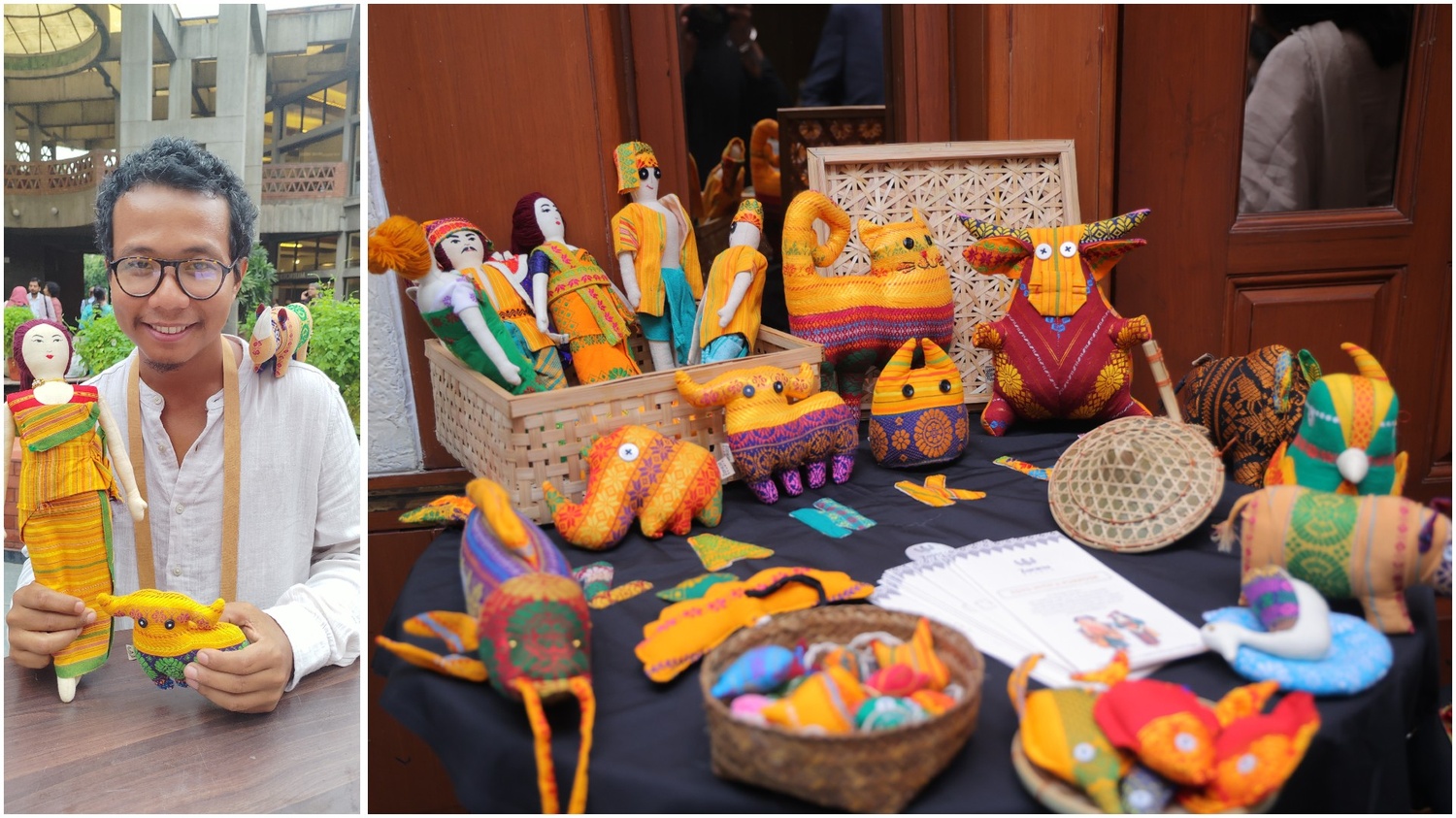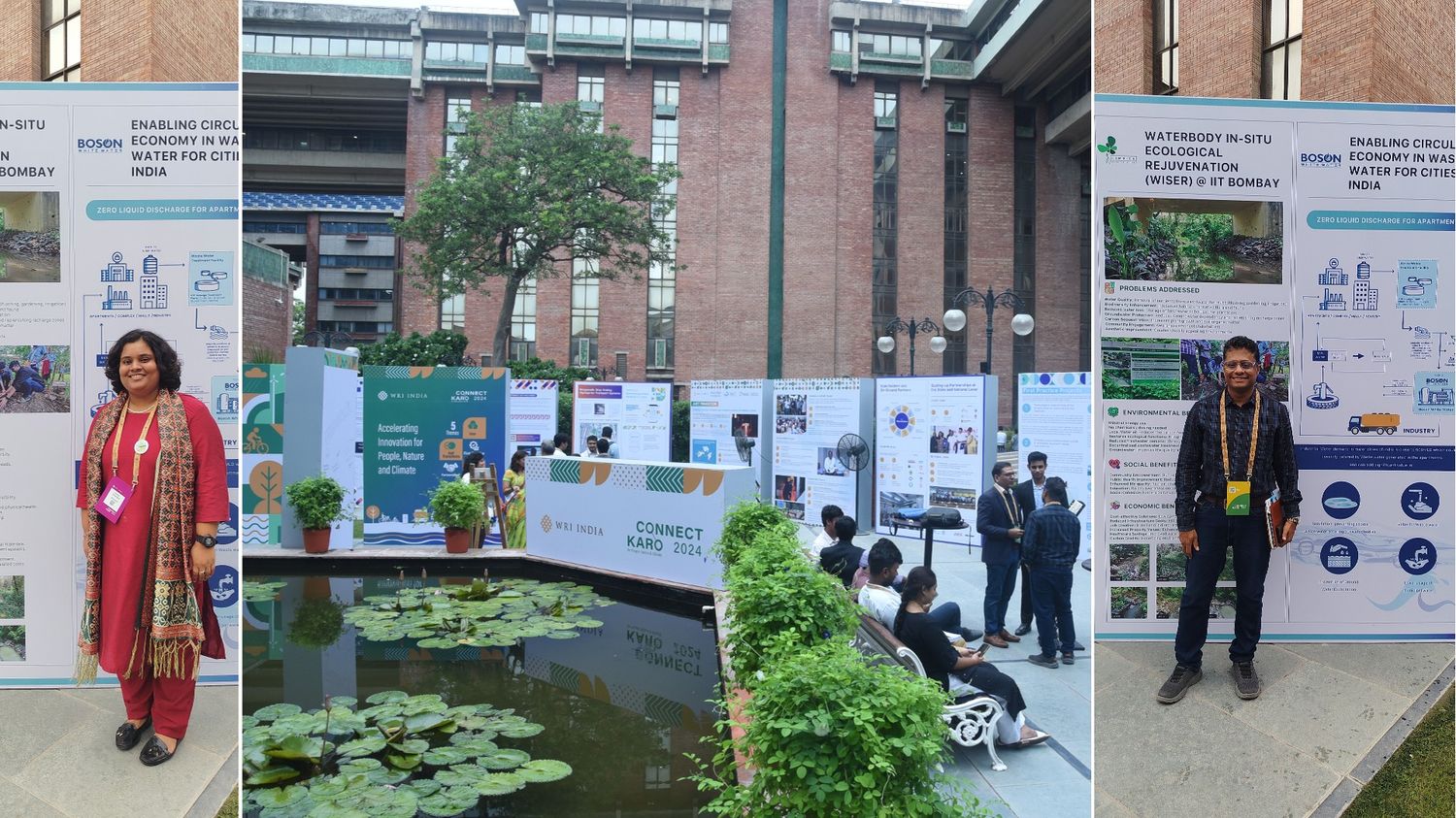Glimpses from Connect Karo 2024: Empowerment, Employment, Energy, Ecology
The second blog, in a two-part series, offers a unique bird’s-eye view of the experience of attending WRI India’s flagship event, Connect Karo 2024. Read the first blog here to know more about the themes of discussion.
Mamta Devi, 30, deftly passes her handbag to her waiting husband as she discusses expanding her venture, Didi Ke Papad, with me. She was participating in the ‘Solution Room: Enhancing Women’s Workforce Participation in Greener MSME Jobs’ session at WRI India’s flagship event, Connect Karo 2024, in New Delhi.
Women at the Forefront
A resident of the largely rural Begusarai district in Bihar, Devi was given a solar papad-making machine this year under a public-private program. The machine helps the group of 12 women that she leads, save time, electricity costs and labour as they roll out the traditional snack by the kilos. As they look to scale up, they need both finance and visibility. In an instance of empowerment meeting employment meeting ecology, Mamta Devi’s endeavour exemplifies a critical step towards the greening of India’s Micro, Small and Medium Enterprises (MSMEs), and the critical role women’s participation could play in it.
“Green livelihoods are being enabled through women,” Uma Mahadevan Dasgupta, Additional Chief Secretary and Development Commissioner, Government of Karnataka, pointed out in the opening plenary of Connect Karo. She shared the story of how over 15,000 women are involved in solid waste management in Karnataka.

Building Children-friendly Cities
Around the same time in another hall of India Habitat Centre, Tanish Kumawat, 20, a resident of Jaipur, Rajasthan, took the mic at the 'Cities by Adolescents – Designing an Inclusive Urban Future' session to talk about the confidence he felt from contributing to creating adolescent-friendly public spaces. He went on to recite a self-composed poem on the subject. “Adults don’t allow children outside; we were forced to play cricket on terraces. We are trying to change that,” he said. Sonali Sahoo, 19, a governing council member of the Safe, Vibrant and Healthy Public Spaces Project from Bhubaneswar, explained how learning from each other helps them apply knowledge and develop cities through the perspective of their future residents and inheritors. “If a city is good for children, it’s good for everyone,” stated Hyun Hee Ban, Chief of Social Policy for UNICEF India.
“Climate change must be seen as a child rights crisis,” said Rogier van den Berg, Global Director, WRI Ross Center for Sustainable Cities, pointing out that safe streets, comfortable transport and accessible public spaces are key to people’s external environment, and are just as critical to the climate change agenda.

Sustainable Livelihoods Meet Local Heritage
In Assam’s Bodo village near Manas National Park, Kirat Brahma, a National Institute of Design graduate is making playtime a cultural learning experience for young children. The best part? The soft toys he makes in conjunction with the local community use traditional textiles, feature local plants and animal species, and feature characters from indigenous folklore and stories. A participant at the Roundtable on ‘Building Thriving Eco City-regions', Brahma described how his studio enables this, “For instance, we trained the Bokar tribe about the red panda, an endangered species, through this exercise.” Social enterprises like Brahma’s Zankhla Studio offer sustainable livelihood opportunities that keep circular economy and local heritage at the heart of economic opportunities.

Innovating for Water-Resilient Cities
In the cities of Pune and Bengaluru, Pooja Tendulkar and Vikas Brahmavar are working toward urban water solutions. Tendulkar, co-founder of Lemnion, one of the five winners of WRI India’s TheCityFix Labs 2022 completed a pilot project on the rejuvenation of a water body to aid in the treatment and capture of water to meet landscaping needs. “We bring a toolkit of nature-based solutions, which are chemical and electricity free, and can benefit soil and plants too,” she said.
Vikas Brahmavar's Boson White Water, a member of TheCityFix Labs 2018 cohort, recycles wastewater to make it potable. “Some 200 crore litres of water per day goes into the drains [in Bengaluru]! Our aim is to make it clean so industries can use that instead of groundwater,” he said. Their organization is currently working with apartment complexes, commercial projects and shopping malls.

Enabling a Green Development Pathway for India
While cities occupy only 3% of India’s land, they produce 60% of its GDP. Urban India houses 31% of the country’s population with elements of “messy” and “hidden” urbanization, explained Sudeshna Chatterjee, Program Director for Sustainable Cities and Transport, WRI India. Nearly 70% of India’s urban infrastructure is yet to be built. A policy that supports less capacitated cities, encourages cross-border collaborations and offers frameworks for finance is key.
Calling it the cusp of both imminent danger and opportunity, Shashishekhar Pandit, Co-founder, Chairman & Group CEO, KPIT Technologies Ltd., pointed to the 1.5-degree temperature mark already breached last year. “It’s a serious concern for the southern hemisphere with significant drops in GDP and jobs. India needs to be built in a way that’s eco-sensitive and climatically sustainable.”
BVR Subramanyam, Niti Aayog CEO, in his keynote address stressed that climate change was no ‘passing fad’. “We are seeking a future where fossil fuels won’t be the driver of growth and markets alone can’t solve the climate problem. Local models will be key to driving change.”
Katikithala Srinivas, Secretary of the Ministry of Housing and Urban Affairs, (MoHUA) offered another perspective in the plenary, ‘Managing at the Frontlines of Urbanisation – Perspectives from the States’ and suggested that “we should go beyond labels.” He proposed if ‘Rurban’ – a process of ruralizing the urban – could be a way of looking at Indian cities of the future?
Talking about the immediate future, Amitabh Kant, former Niti Aayog CEO, suggested that the 2047 renewable energy transition will rely heavily on states. “India should set an example and become an exporter of clean energy in times to come.”
The 2024 edition of Connect Karo offered varied perspectives for deliberation as India negotiates a low-carbon development path for its future. Through the presence of decision-makers, diverse stakeholders, young leaders and innovators, it not only offered a glimpse of what an inclusive, people-centric, vibrant and sustainable future requires but also what the inheritors of this future demand. As this year’s Connect Karo comes to an end, we look forward to continuing spirited dialogues and fostering collaboration for a sustainable tomorrow.
All views expressed by the author are personal. Read the first blog in this series here. Click here to view plenary videos from the event. View our press release for a run-down of the key launches at Connect Karo 2024.
